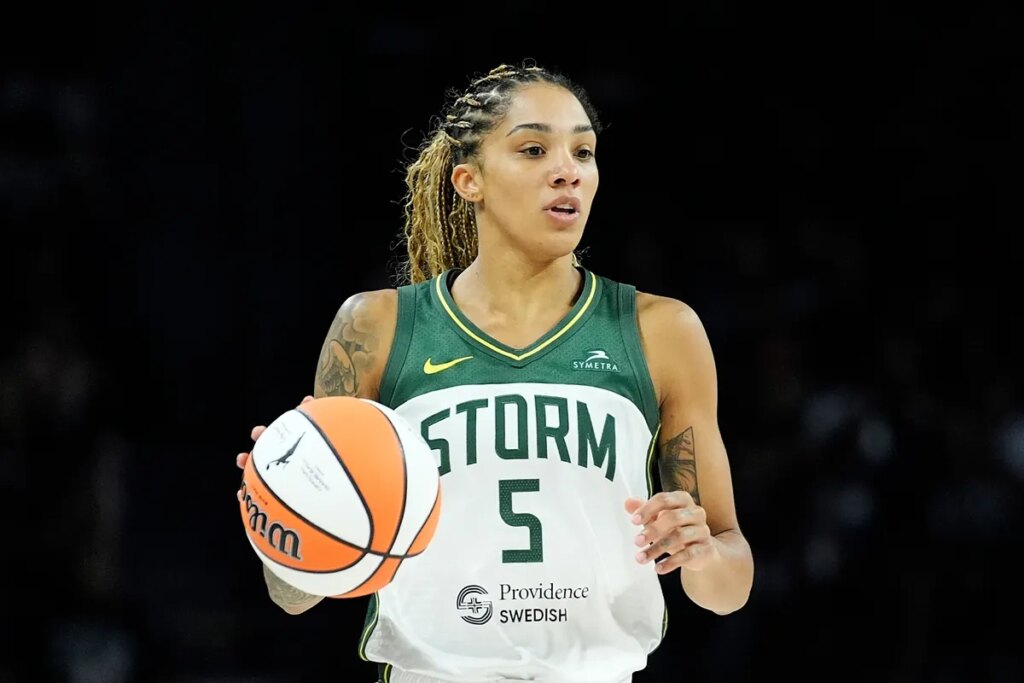Seattle Storm standout Gabby Williams has made headlines for her sudden departure from the WNBA, a decision that comes in the aftermath of a heated exchange involving comments about women’s basketball salaries and rising star Caitlin Clark.Williams, who was a key figure for the Storm this season, is no stranger to speaking her mind, and her latest remarks have sparked widespread discussion about the financial realities of the league.
The controversy began when Williams publicly challenged claims made by WNBA commissioner Cathy Engelbert regarding the earning potential of players. Engelbert had stated that some WNBA athletes could make up to $700,000 annually. But Williams, frustrated by the discrepancy between public perception and reality, took to social media to set the record straight, declaring that no player earns that kind of money solely through their WNBA salary.
Following Seattle’s elimination from the playoffs by the Las Vegas Aces, Williams took an even bolder step-leaving the WNBA altogether to play overseas. The 28-year-old power forward, who was drafted in the first round by the Chicago Sky in 2018, signed with Fenerbahce in Turkey. Her decision underscores a growing trend among WNBA players seeking better financial opportunities abroad.
The tipping point seemed to come after Williams’ comments stirred up a firestorm among Caitlin Clark’s fans. When a fan pointed out that Clark had reportedly made over $700,000 during her rookie season, Williams clarified that her critique was aimed at WNBA salaries, not outside earnings like endorsements. “Clark makes $70,000 in the WNBA. The rest is off endorsements,”Williams stated firmly, drawing attention to the stark contrast between base salaries and the figures often quoted in the media.
Gabby Williams calls out WNBA’s broken promises, highlights growing financial struggles for international players
For Williams, the issue runs deeper than just one player. She criticized the league’s marketing agreements, which she claims have failed to deliver on their promises. “We were told there would be team and league marketing agreements, but they’ve fallen short,“ Williams said, adding that the financial landscape of the WNBA still doesn’t provide enough incentive for international players to stay.
Her frustration echoes the sentiments of many WNBA players who, despite the league’s growth, still face financial challenges compared to their male counterparts. “If I make a choice to make more money overseas, teams get upset, but that’s just how it is,” Williams explained, highlighting the difficult decisions many athletes face in balancing their careers and financial well-being.
Before heading to Turkey, Williams had a strong season with the Storm, averaging 10.3 points, four rebounds, and 3.7 assists per game. Her departure not only leaves a void in Seattle’s roster but also reignites the debate about the financial sustainability of playing in the WNBA.
As Williams embarks on her new journey in Europe, her decision may inspire more players to follow suit, raising further questions about the WNBA’s ability to retain top talent amid ongoing salary concerns.
Read the full article here

